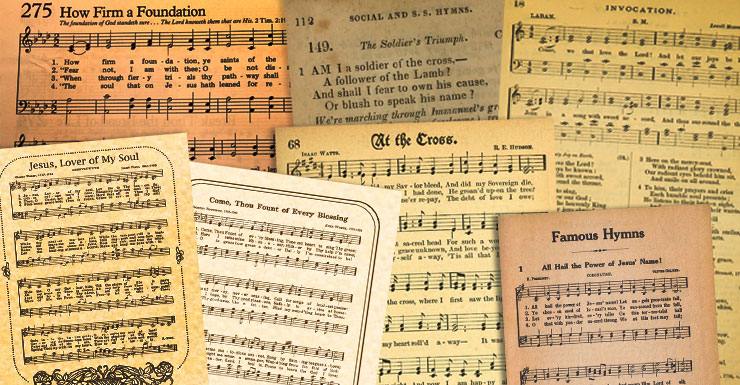
This year I have planned one sermon each month to talk about the music we sing in church. You may be wondering — why?
Pastors are not trained in music in most traditions. All of the musical training I have is completely separate from my pastoral formation. Still, in many congregations, including this one, a pastor is given the honor and responsibility of choosing the hymns the congregation will sing together. This is a dangerous endeavor, and not only because of our lack of training.
Just consider: folks in our congregation grew up in different denominations, congregations, camps, and families, all of which had their own particular set of beloved holy songs. This means if someone comes to ask me why we’re not singing the traditional songs they know and love, I have to ask: which ones are traditional for you?
To complicate things even further, some folks here grew up in other faith traditions, or without a family faith tradition, or simply without falling in love with any form of Christian hymody. These folks often long for something that feels fresher, whether in language or in musical style. For these folks, coming to church on a Sunday morning may feel as if you’ve taken a trip back in time, perhaps 50, 100, or even 500 years.
There are all kinds of things that go through my head as I choose the hymns for each Sunday, and recently I began to wonder: why am I not sharing that process with all of you? Hymns shape our worship experience, they teach us about God, they form our faith. For many of us, music, and singing, reach a place in the heart that mere sermons cannot hope to touch. Shouldn’t everyone get to participate in the discussion about what we sing together?
So we begin, today, at the beginning: with what may be the most ancient songs of our tradition, the Hebrew psalms that we share in common with our Jewish siblings. There are 150 psalms in our scriptures, and in many times and places, they have been the primary, if not the only, text for Christian music. If this feels limiting to you, consider how many different ways people have translated and sung them. You can find the psalms in almost every language in many translations; and in just about every musical style, from Gregorian chant to millennial worship band. All these many versions of the psalms explore and expand on an already very rich source. The words of the Psalms contain just about every human emotion towards God, including anger, awe, longing, desperation, gratitude, and dedication.
Our worship is always full of psalms. Today, there are even more, and I’ve marked them in the bulletin for easy recognition. But we’ve taken as our particular text for the day, Psalm 121. This psalm is marked as a psalm of ascent: a song for those on holy pilgrimage to Jerusalem; a song for anyone on a journey. Because all of us are on some sort of a journey, it’s a lovely psalm to keep close to us: a reminder of who is our help and our keeper, as we move through the difficulties and dangers of life.
I want to give you just a tiny taste of the great variety of ways this beautiful text has been set to music. So, we’ll listen to three short selections.
- First, part of a setting from Hildegard of Bingen, a medieval abbess, mystic, scientist, musician, and all-around genius, from the Rhineland. This version is a chant, sung in Latin. (from the album “Kiss of Peace: Songs from the Dendermonde Manuscript).
- Moving forward about a thousand years, we’ll hear next a piece of a setting from Sir Walter Davies, an English composer, organist, conductor, to give us a taste of what psalms sound like in the English choral tradition.
- And last but not least, moving forward a few decades and across the Atlantic, we’ll hear from a setting called “Total Praise,” by Richard Smallwood, a contemporary African-American gospel music composer, music director, and pianist.
Now, I know it is cruel to leave you hanging on any of these. They deserve to be heard in full. And there are lots more I can’t even play at all, from Vivaldi, Dvorak, Bernstein, John Rutter, the band All Sons & Daughters, and many more. This is a teaser, to encourage you to explore settings of the psalms on your own; to learn what they have to teach us not simply from their words, but from the musical expression of so many faithful people who have set them to music.
(You can listen to the three pieces above, and many more songs based on or inspired by Psalm 121, on this playlist. Did I miss some of your favorites? Let me know!)
You may have noticed that none of the songs I just played are for congregational singing; they’re for soloists and choirs. For much of Christian history, most of our music has been for music specialists. But we’ll talk more as the year goes on about how Christians made the shift toward songs made for congregations to sing together. Our final version of Psalm 121 is from the Scottish Psalter of 1909, set to the familiar tune of Amazing Grace; the words are in your bulletin. Let’s use our own voices to lift up our thanks to God, our help and our keeper.